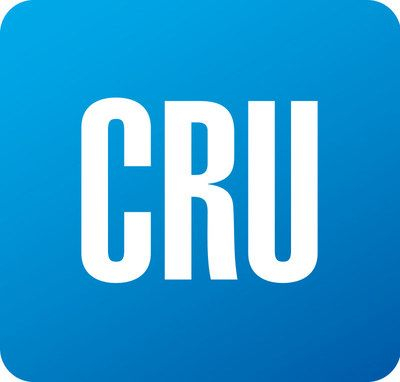CRU

January 8, 2021
CRU: U.S. Buyers Seek Import Options Amid Extreme Supply Tightness
Written by Estelle Tran
By CRU Prices Analyst Estelle Tran, from CRU’s Global Steel Trade Service
U.S. steel service center inventories continue to remain low in terms of material in stock, as many buyers reported that they cannot secure all the sheet steel they require. Steel Market Update, which is owned by CRU, reported service centers carried 51.3 shipping days of supply of sheet at the end of December, which was down from 62.9 shipping days of supply in December 2019. However, service centers also have record levels of material on order, according to the SMU data, though when factoring the seasonal increase in shipping levels expected in January-February, inventories are still lean at 40-43 shipping days of supply. Strong bookings extended sheet mill lead times out to 6-12 weeks, depending on the product and mill. Late last year when service centers were panicking about covering customer requirements, buyers looked to offshore options to secure material. However, now that prices are nearing the peak, many buyers are finding that import options are limited and are avoiding placing orders that are not pre-sold.
December steel import licenses indicate that imports of carbon and alloy flat products in December will be nearly flat y/y at about 651kt. January license data, though incomplete, will probably be up significantly because of the seasonal uptrend with buyers restocking ahead of the usual Q1 pickup in demand. However, the additional material purchased when buyers realized the extent of the domestic supply shortfall in November and December will not arrive in the U.S. market until March-April.
Current offers for May-June arrival are no longer attractive because of the long lead time and due to uncertainty about where pricing will be at that time. Imports may continue to be workable for West Coast buyers purchasing from Asian origins, or for HDG coil. CR coil imports have been heard around $1,140 /s.ton delivered to the Port of Los Angeles.
For long products, imports have also become uncompetitive. In early January, Turkish mills were offering material at $37.50-38.00/cwt ($750-760 /s.ton) on a loaded truck basis in the Gulf Coast. With the rapid increase in scrap prices, new estimates for Turkish rebar are closer to $860 /s.ton on a loaded truck basis, for May-June arrival, which would be unworkable for U.S. buyers.
Mexican Mills Lobby Government for Extended Duties
Mexican sheet producers have asked the government to extend the end date of the countervailing duties on HR coil imports from Germany, France and China that were set to expire on Dec. 22, 2020. The duties have been in place since December 2015 with duties in the $67-355 /t range. Combined with the 15% import tax, imports from these countries were negligible in 2020 and would continue to be minimal if the duties are extended.
Meanwhile, Mexican hot-rolling capabilities are expanding with Ternium slated to commission its 4.4Mt/y HR coil rolling mill mid-year. This will drive further slab demand, particularly in H2.
Brazilian Slab Prices Follow Steel Prices Higher
The January Brazilian slab export price assessment of $770 /t FOB was up $170 /t m/m, however, prices have escalated further in the last week. The latest offers for Brazilian slab are around $840 /t FOB Brazil to the USA. Comparing slab prices to their lowest level of 2020, which was in April, prices have increased $505 /t. The low point for U.S. HR coil pricing came in August, when the CRU Midwest HR coil price hit $437 /s.ton ($482 /t), and prices have since climbed to $1,072 /s.ton ($1,181 /t) on Jan. 20. In that time prices increased $635 /s.ton ($700 /t). The increased spread of HR coil pricing now from its low point indicates rerollers in the USA increased their margins even with the rapid rise in slab prices, and there may be further headroom for slab prices to rise if sheet prices remain around current elevated levels and do not retreat quickly.
The reset of the Section 232 slab quotas this year will allow rerollers to operate at more normal operating levels. The Trump administration cut Brazil’s remaining quota for semifinished steel in Q4 to 60kt from 350kt ahead of negotiations in December; however, the negotiations resulted in a rollover of Brazil’s 3.5Mt annual slab quota for 2021.
At the same time, Brazil has been importing CIS slabs, which would be subject to a 25% Section 232 tariff in the U.S. Steel demand has been strong in Brazil, which has driven market participants to increase imports of long products from Turkey for February arrival.
Outlook: Steel Markets Seeking Supply-Demand Balance
With U.S. HR coil prices at $1,072 /s.ton, market participants are weighing fears of having too much material at the peak of the market with the reality that mill lead times are still extended. We have started hearing about projects being postponed because of the dramatic increase in steel costs. Tightening credit, lackluster outlooks for non-residential construction, the evolving chip shortage creating auto production delays and skyrocketing freight costs will have more steel buyers avoiding imports going forward.
In Brazil, robust domestic slab demand has helped to support prices, however, this will change mid-year, as Usiminas announced it will reopen its BF#2 (1Mt/y capacity) in June 2021. This mill has been the main buyer of merchant slab in the Brazilian market. There are few homes for slab priced at $840 /t FOB, feeding concern that prices will start to recede. The $840 /t price has been workable in Brazil, the U.S. and Mexico, but other countries will not accept pricing at this level. With Turkish HR coil export prices at $800 /t FOB, they would not accept such high slab prices. While strong steel demand in the U.S. and Mexico will help to support slab prices in the near term, steel demand outside these countries should shorten the timeframe for further gains.
Request more information about this topic.
Learn more about CRU’s services at www.crugroup.com



